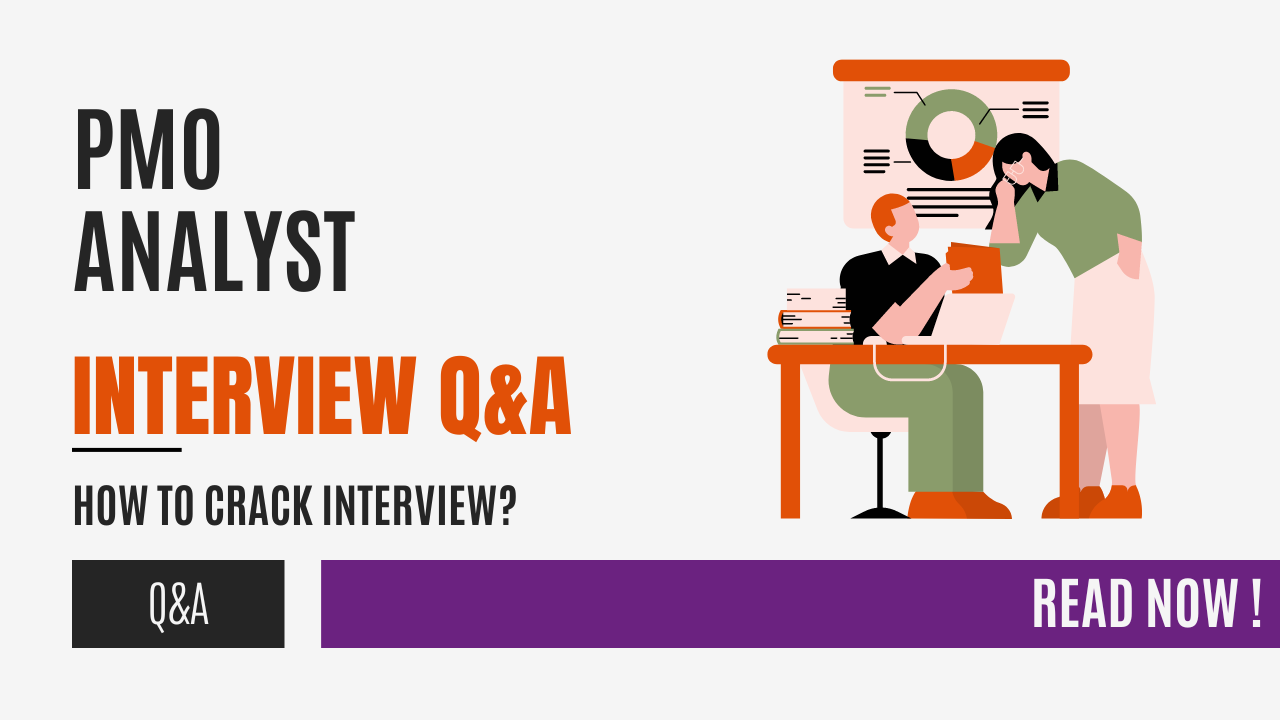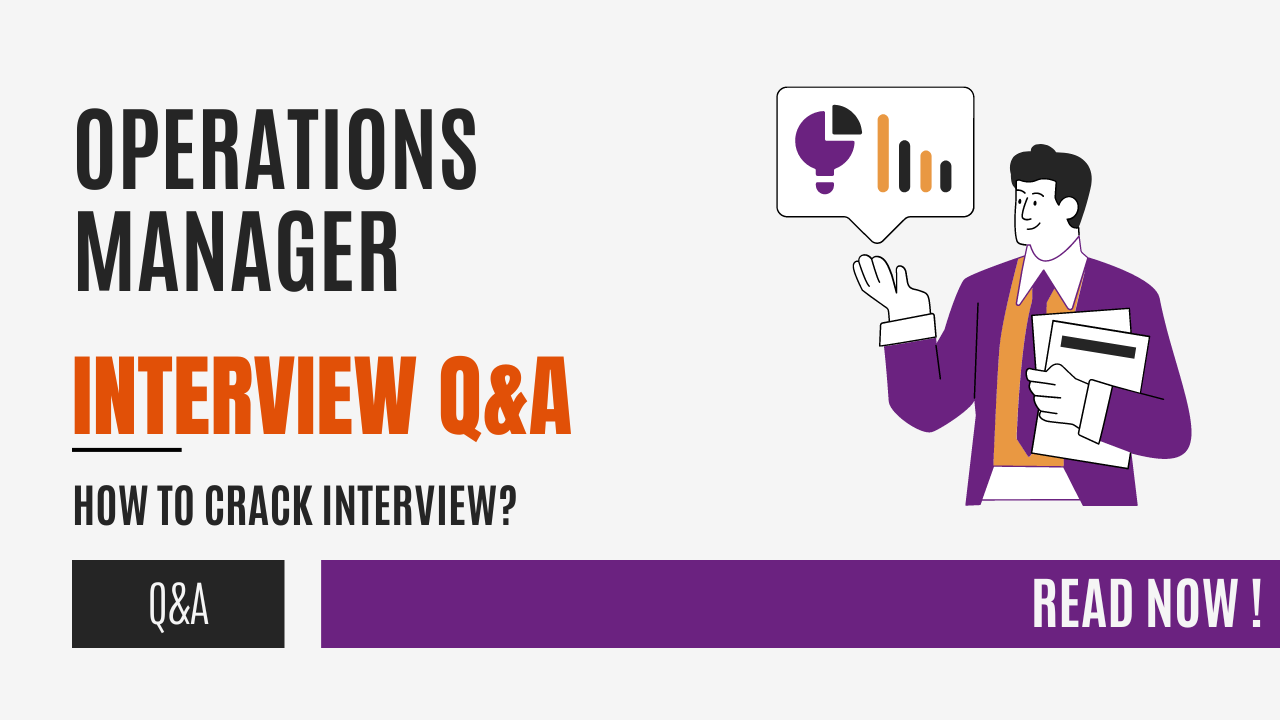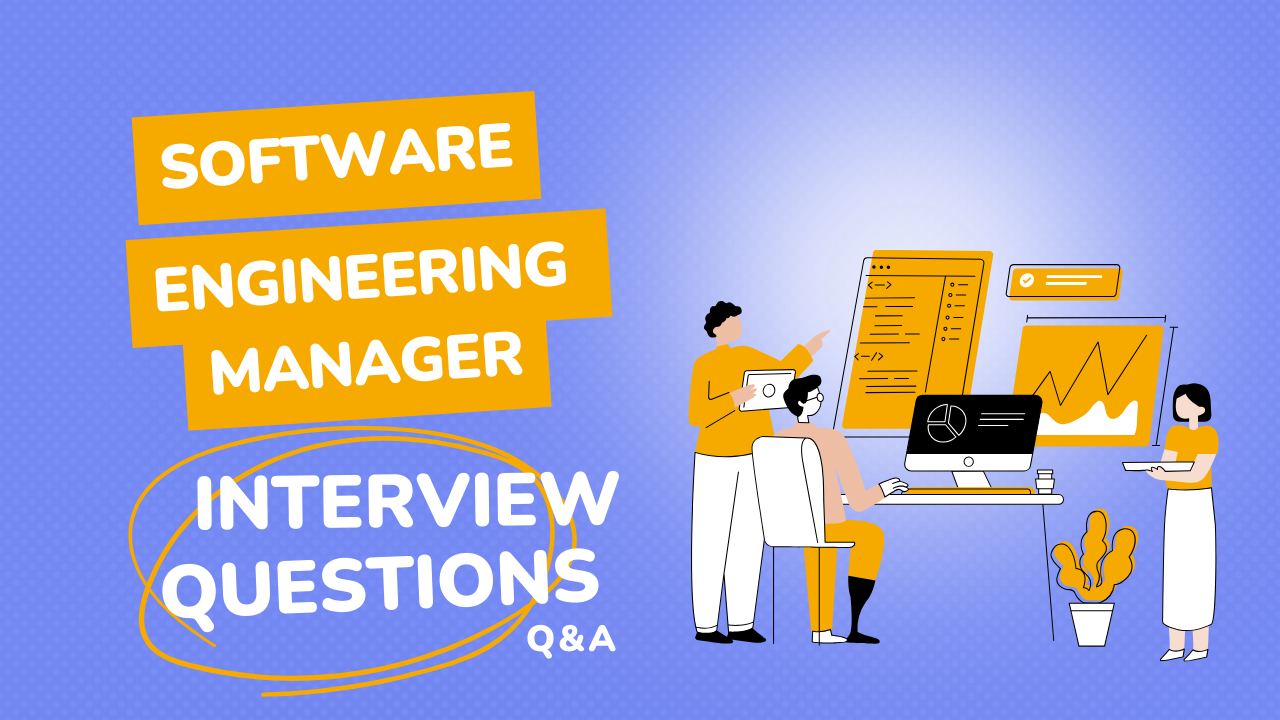Blog Detail

How to crack PMO Analyst Interview Process in Malaysia
Jul 10, 2024
Introduction:
Securing a PMO (Project Management Office) Analyst position in Malaysia can be an exciting opportunity for professionals looking to contribute their skills in project management and organizational efficiency. However, the interview process can be rigorous, requiring candidates to demonstrate their understanding of project methodologies, analytical capabilities, and interpersonal skills. This guide aims to provide comprehensive insights into the PMO Analyst interview process in Malaysia, helping candidates prepare effectively and stand out during their interviews.
Understanding the Role of a PMO Analyst:
Before delving into interview preparations, it's crucial to grasp the responsibilities and expectations associated with the role of a PMO Analyst. In Malaysia, a PMO Analyst typically works within a project management office, assisting in the planning, execution, and monitoring of various projects across an organization. Key responsibilities may include:
- Developing and maintaining project management methodologies and standards.
- Providing support in project planning, scheduling, and resource allocation.
- Analyzing project data to identify trends, risks, and opportunities for improvement.
- Generating reports and dashboards to communicate project status and performance.
- Collaborating with project managers and stakeholders to ensure alignment with project objectives.
Now that we have a clear understanding of the role, let's explore the essential steps to prepare for a PMO Analyst interview in Malaysia:
- Research the Company: Start by researching the organization you're interviewing with. Understand their industry, the types of projects they undertake, and their organizational structure. Familiarize yourself with their mission, values, and recent achievements. This knowledge will demonstrate your genuine interest in the company and help you tailor your responses during the interview.
- Review Project Management Principles: Brush up on your knowledge of project management principles, methodologies, and frameworks such as Agile, Waterfall, and Lean Six Sigma. Be prepared to discuss how these methodologies are applied in real-world scenarios and how you can contribute to implementing them within the organization.
- Highlight Your Analytical Skills: As a PMO Analyst, you'll be expected to analyze data and provide insights to support decision-making processes. Prepare examples that showcase your analytical skills, such as how you've identified project risks, optimized resource utilization, or improved project performance through data analysis in your previous roles.
- Showcase Your Communication Skills: Effective communication is essential for a PMO Analyst, as you'll be interacting with various stakeholders, including project managers, team members, and senior executives. During the interview, demonstrate your ability to communicate complex ideas clearly and concisely. Practice articulating your thoughts and actively listen to the interviewer's questions.
- Be Prepared for Behavioral Questions: Expect to encounter behavioral questions that assess your past experiences and how you've handled specific situations. Use the STAR (Situation, Task, Action, Result) technique to structure your responses, providing concrete examples of challenges you've faced, the actions you took, and the outcomes achieved. Tailor your examples to demonstrate relevant skills such as problem-solving, teamwork, and adaptability.
- Demonstrate Your Technical Proficiency: Depending on the organization's requirements, you may be asked about your proficiency in project management tools such as Microsoft Project, Jira, or Asana. Familiarize yourself with these tools and be prepared to discuss your experience using them to support project planning, tracking, and reporting activities.
- Prepare Questions to Ask: Towards the end of the interview, you'll likely have the opportunity to ask questions about the role or the organization. Prepare thoughtful questions that demonstrate your genuine interest in the position and your eagerness to learn more about how you can contribute to the team's success.
25 common interview questions for a PMO Analyst position in Malaysia.
1. Tell me about your experience with project management methodologies such as Agile and Waterfall.
Sample Answer: "In my previous role, I was involved in implementing Agile methodologies for software development projects. I facilitated sprint planning meetings, conducted daily stand-ups, and ensured teams adhered to Agile principles to deliver projects on time and within scope."
2. How do you ensure project stakeholders are informed about project progress?
Sample Answer: "I believe in clear and transparent communication with stakeholders. I regularly update them through status reports, project dashboards, and scheduled meetings. I ensure stakeholders are aware of any changes in project timelines or deliverables promptly."
3. Can you describe a time when you successfully managed conflicting priorities in a project?
Sample Answer: "In a previous project, we faced competing deadlines for resource allocation. I collaborated with project managers to prioritize tasks based on strategic objectives and resource availability. By communicating effectively and reallocating resources as needed, we managed to meet all deadlines without compromising project quality."
4. How do you identify and mitigate project risks?
Sample Answer: "I conduct thorough risk assessments at the outset of a project to identify potential risks and their impact. I then work with the project team to develop risk mitigation strategies, such as contingency plans and risk response actions, to minimize the likelihood and impact of risks throughout the project lifecycle."
5. How do you measure project success?
Sample Answer: "Project success can be measured by various factors, including meeting project objectives, delivering within budget and schedule, and stakeholder satisfaction. I track key performance indicators (KPIs) such as project variance, schedule adherence, and customer feedback to evaluate project success."
6. Describe your experience with project budgeting and cost management.
Sample Answer: "I have experience developing project budgets, monitoring expenditures, and identifying cost-saving opportunities. In one project, I implemented cost-tracking tools to monitor expenses against the budget, enabling us to identify cost overruns early and take corrective actions to stay within budget."
7. How do you handle project scope changes?
Sample Answer: "I assess the impact of scope changes on project objectives, timeline, and resources. I work closely with stakeholders to evaluate the necessity of the change and its implications on project deliverables. If approved, I update project documentation and communicate the changes to the project team to ensure everyone is aligned."
8. Can you discuss your experience with project documentation and reporting?
Sample Answer: "I am proficient in creating and maintaining project documentation, including project charters, work breakdown structures (WBS), and risk registers. I also generate regular status reports and dashboards to communicate project progress, milestones achieved, and upcoming tasks to stakeholders."
9. How do you foster collaboration among project teams and stakeholders?
Sample Answer: "I believe in creating a collaborative environment where teams and stakeholders can openly communicate and share ideas. I organize regular meetings, workshops, and cross-functional collaboration sessions to ensure everyone is aligned and working towards common project goals."
10. Tell me about a time when you had to resolve a conflict within a project team.
Sample Answer: "In a previous project, there was a disagreement between team members regarding project priorities. I facilitated a constructive dialogue, actively listening to each person's perspective and encouraging compromise. By clarifying expectations and finding common ground, we resolved the conflict and refocused on project objectives."
11. How do you stay organized and manage multiple projects simultaneously?
Sample Answer: "I prioritize tasks based on project deadlines, strategic importance, and resource availability. I use project management tools such as Trello or Microsoft Project to track project tasks, milestones, and dependencies. Regularly reviewing project schedules and communicating with stakeholders helps me stay organized and manage multiple projects effectively."
12. Can you discuss your experience with project risk management tools and techniques?
Sample Answer: "I have experience using risk management tools such as risk matrices, probability-impact assessments, and Monte Carlo simulations to identify, assess, and prioritize project risks. By proactively managing risks throughout the project lifecycle, I minimize the likelihood of negative impacts on project objectives."
13. How do you ensure project deliverables meet quality standards?
Sample Answer: "I establish quality metrics and acceptance criteria early in the project lifecycle in collaboration with stakeholders. I conduct regular quality assurance reviews, perform testing, and gather feedback to ensure project deliverables meet or exceed quality standards. Continuous improvement initiatives and lessons learned sessions help identify areas for enhancement."
14. Describe your experience with resource allocation and capacity planning.
Sample Answer: "I have experience allocating resources based on project requirements, team availability, and skillsets. I conduct resource capacity planning to ensure the optimal utilization of resources across multiple projects. Regularly monitoring resource allocation and workload helps prevent resource bottlenecks and optimize project efficiency."
15. How do you adapt to changes in project priorities or requirements?
Sample Answer: "I remain flexible and adaptable in dynamic project environments. When priorities or requirements change, I assess the impact on project objectives and timelines. I collaborate with stakeholders to reprioritize tasks, reallocate resources, and adjust project plans accordingly to ensure successful project delivery."
16. Can you discuss your experience with stakeholder management?
Sample Answer: "I engage stakeholders throughout the project lifecycle to ensure their expectations are understood and managed effectively. I identify key stakeholders, establish communication channels, and tailor communication strategies to their preferences. Building strong relationships with stakeholders helps foster collaboration and support project success."
17. How do you handle project dependencies and critical paths?
Sample Answer: "I identify project dependencies and critical paths early in the project planning phase using techniques such as network diagrams and dependency matrices. I monitor critical paths closely and proactively manage dependencies to mitigate risks and prevent delays. Clear communication and coordination among project teams are essential for successful dependency management."
18. Tell me about a challenging project you managed and how you overcame obstacles.
Sample Answer: "In a challenging project with tight deadlines and limited resources, I prioritized tasks, streamlined processes, and motivated the team to maintain focus and momentum. I also collaborated closely with stakeholders to manage expectations and address any issues promptly. Through effective planning and proactive risk management, we successfully delivered the project on time and within budget."
19. How do you ensure alignment between project objectives and organizational goals?
Sample Answer: "I align project objectives with organizational goals by clearly defining project scope, objectives, and success criteria in collaboration with stakeholders. I regularly communicate project progress and milestones to senior management, ensuring they are informed and engaged. By demonstrating how project outcomes contribute to organizational objectives, I foster alignment and support."
20. Discuss your experience with change management in projects.
Sample Answer: "I understand the importance of change management in project success. I develop change management plans to assess the impact of changes on project scope, timeline, and resources. I communicate change effectively to stakeholders, address concerns, and facilitate adoption through training and support. Regular communication and feedback mechanisms help ensure successful change implementation."
21. How do you handle project delays or setbacks?
Sample Answer: "When faced with project delays or setbacks, I assess the root causes, identify corrective actions, and communicate transparently with stakeholders. I develop mitigation strategies to minimize the impact on project objectives and work closely with the project team to expedite tasks or reallocate resources as needed. Learning from setbacks and adapting our approach helps us overcome challenges and stay on track."
22. Can you discuss your experience with project governance and compliance?
Sample Answer: "I ensure projects adhere to established governance frameworks, policies, and regulations by implementing robust project controls and procedures. I conduct regular project audits to assess compliance and identify areas for improvement. Collaboration with internal audit teams and adherence to industry standards help maintain project governance and compliance throughout the project lifecycle."
23. Describe your approach to continuous improvement in project management processes.
Sample Answer: "I believe in fostering a culture of continuous improvement by regularly evaluating project management processes, identifying inefficiencies, and implementing enhancements. I encourage team members to provide feedback and share lessons learned to drive process improvements. By embracing change and innovation, we enhance project efficiency, effectiveness, and ultimately, deliver better outcomes."
24. How do you handle competing priorities among different stakeholders?
Sample Answer: "I prioritize stakeholder requirements based on their strategic importance and impact on project objectives. I facilitate open communication channels to ensure stakeholders' concerns are heard and addressed appropriately. In cases of conflicting priorities, I collaborate with stakeholders to find common ground and negotiate mutually acceptable solutions that align with project goals."
25. Why are you interested in joining our organization as a PMO Analyst?
Sample Answer: "I am impressed by your organization's reputation for innovation and commitment to excellence. I am excited about the opportunity to contribute my skills and experience to support your projects and help drive strategic initiatives forward. I believe my background in project management and analytical capabilities align well with the challenges and opportunities this role offers, and I am eager to be part of your dynamic team."
These sample answers provide a framework for responding to common interview questions for a PMO Analyst position in Malaysia. However, candidates should tailor their responses based on their unique experiences, skills, and the specific requirements of the role and organization.
What could be expected in a PMO analyst interview?
In a PMO Analyst interview in Malaysia, candidates can expect a comprehensive evaluation of their project management knowledge, analytical skills, communication abilities, and cultural fit within the organization. Here's what you can typically expect during a PMO Analyst interview in Malaysia:
- Technical Questions: Expect questions related to project management methodologies (Agile, Waterfall, etc.), project governance, risk management, resource allocation, budgeting, and project reporting. Interviewers may inquire about your experience with project management tools and techniques, such as Gantt charts, stakeholder analysis, and earned value management.
- Behavioral Questions: Interviewers may ask about past experiences and how you handled various situations in previous roles. Be prepared to provide examples of successful project implementations, conflict resolution within project teams, managing stakeholders, and handling challenging project scenarios.
- Analytical Skills Assessment: You might encounter questions or scenarios that test your analytical thinking and problem-solving abilities. Interviewers may present you with project data or hypothetical situations and ask how you would analyze the information to make informed decisions or mitigate risks.
- Communication Skills Evaluation: Effective communication is crucial for a PMO Analyst role. Expect questions that assess your ability to communicate complex ideas clearly, interact with stakeholders, and present project information concisely. You may also be asked to discuss how you would communicate project status updates to different audiences, such as project teams or senior management.
- Cultural Fit: Interviewers may assess your compatibility with the organization's culture and values. They may ask questions to understand your work style, team collaboration preferences, and how you handle challenges in a multicultural environment. Demonstrating adaptability, flexibility, and a willingness to learn and grow within the organization can positively influence your evaluation.
- Role-Specific Scenarios: Be prepared to discuss how you would approach specific tasks or responsibilities relevant to the PMO Analyst role, such as developing project plans, tracking project progress, identifying and mitigating project risks, and ensuring project deliverables meet quality standards.
- Company-Specific Questions: Interviewers may inquire about your knowledge of the organization, its industry, and recent projects or initiatives. Research the company beforehand to demonstrate your genuine interest and understanding of how your skills and experience align with their goals and objectives.
- Questions for the Interviewer: Towards the end of the interview, you'll likely have the opportunity to ask questions about the role, team dynamics, or the organization's culture. Prepare thoughtful questions that show your interest in the position and your desire to contribute effectively if hired.
Overall, a PMO Analyst interview in Malaysia will focus on assessing your technical competencies, problem-solving abilities, communication skills, and cultural fit within the organization. By thoroughly preparing for each of these areas and showcasing your relevant experiences and achievements, you can increase your chances of success during the interview process.








